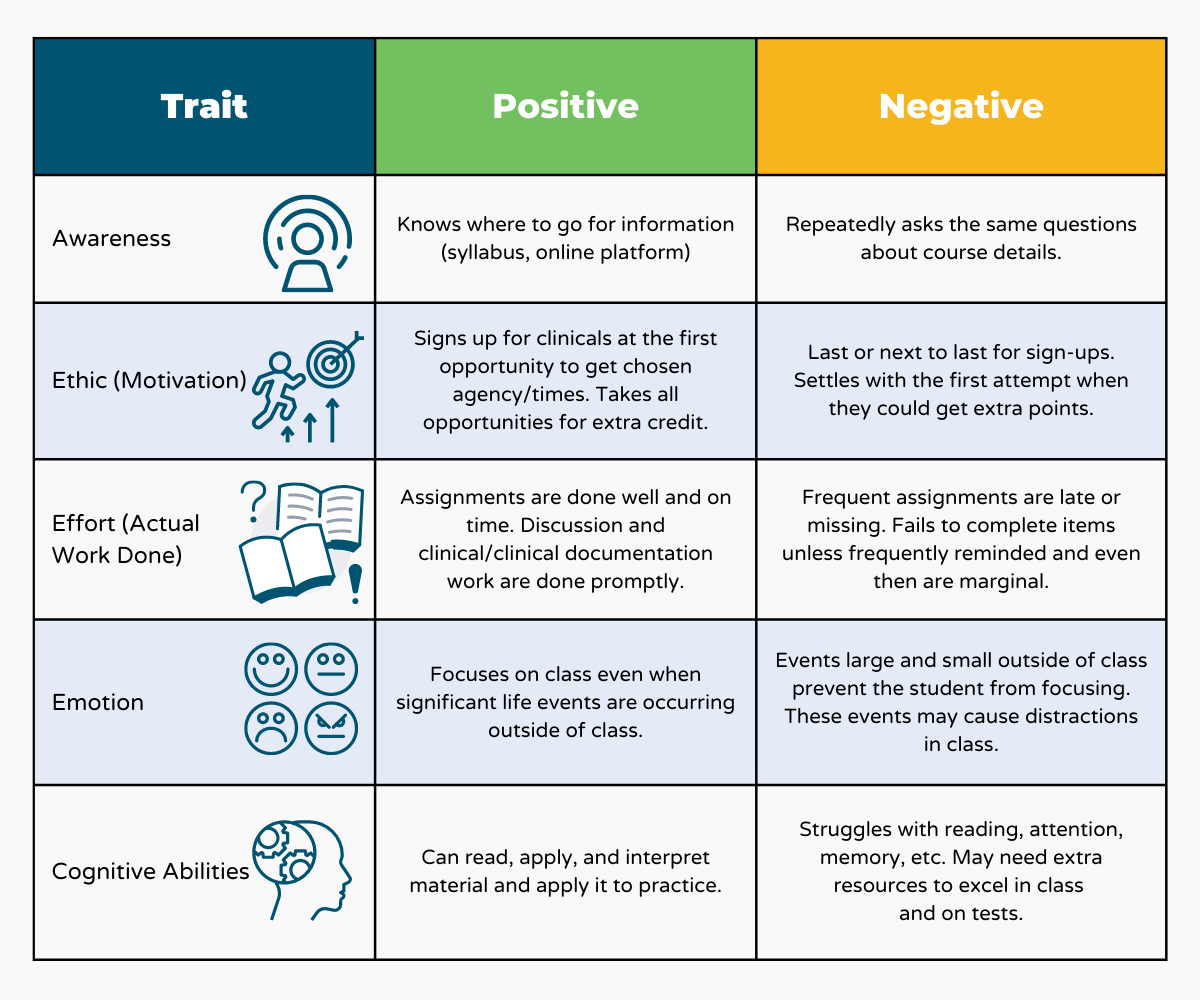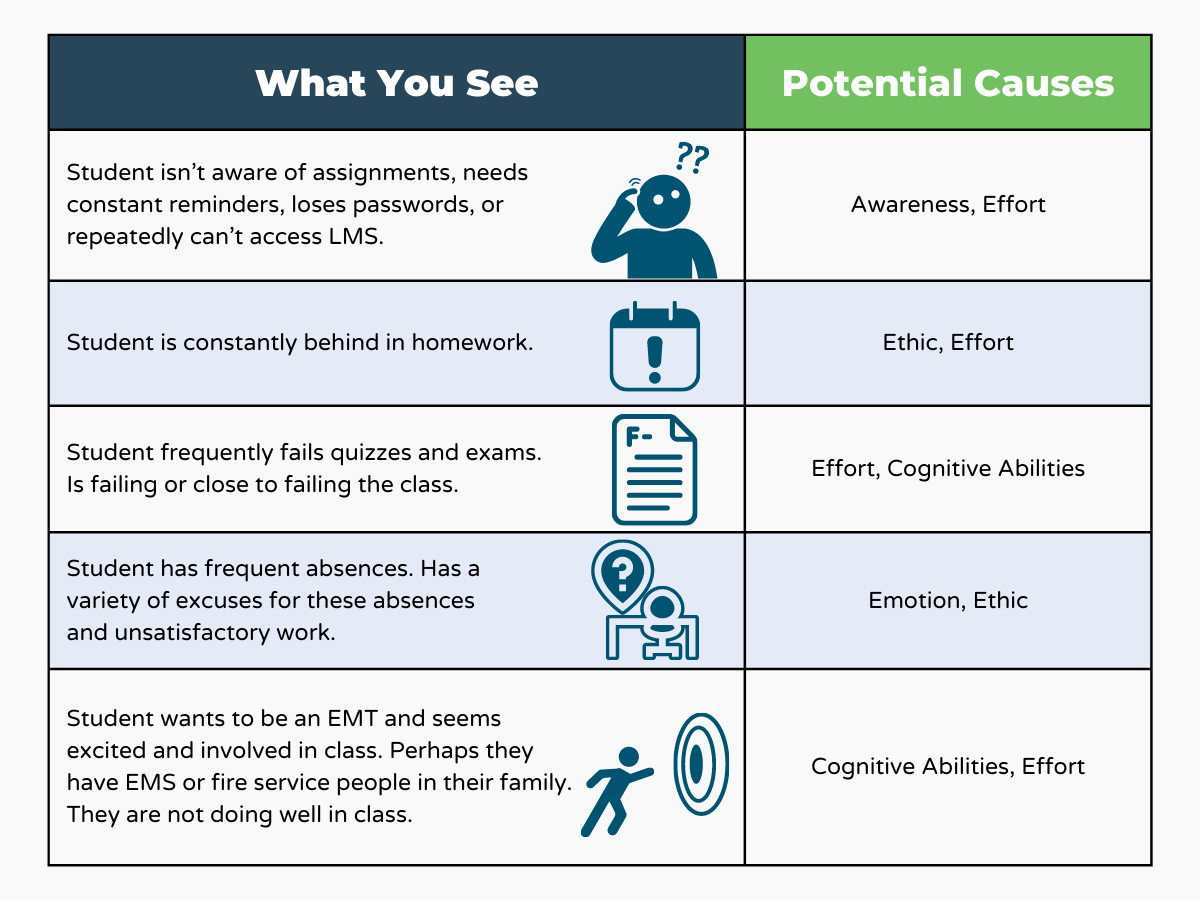
Dan Limmer, BS, NRP

by Limmer Education
Our articles are read by an automated voice. We offer the option to listen to our articles as soon as they are published to enhance accessibility. Issues? Please let us know using the contact form.
The first month of the semester is about getting to know your students—and your students getting to know you.
Students learn about the course, about you, how you test, and what they can get away with. As an educator, you learn names and stories, look at motivation, and wonder about ultimate success and failure.
There are five things we have found that help predict student success. There may be others—and this isn’t scientific—but we believe these five things will give you a good idea about students and their potential for success (or failure).
You can see a person’s actions. You have to look deeper to find the motivation behind those actions.
Awareness – Is the student aware of the class going on around them, including basic rules, information sources, and policies?
Ethic – It isn’t that this student goes the extra mile; it is that this student has to go the extra mile.
Effort – Whether this is the student who flies through doing the work or the student who chugs along getting it done, it takes effort to succeed at EMS.
Emotion – It is usually a problem when emotion (aka drama) is a primary driver in the student. This primary drive to crisis and conflict keeps the student from succeeding—even when other positive elements are present.
Cognitive abilities – This is sometimes the toughest of the five. Some students have the cognitive ability (mental toolbox) to read, interpret, process, and perform, while others don’t.
We realize that these items blend together. Ethic and effort are different but intertwined. We separated them because how you would deal with the student in each situation may vary. Some examples include:

If you look at your student and see issues in one or more of these categories, the next question is how to deal with it. Identifying which one or more of these issues exist may help you with a plan to get the student back on track.
Some are much easier to correct than others. Ethic issues are entirely intrinsic, while prodding may help effort issues. Learning or tutoring centers may help some with cognitive problems—but not all. Some will withdraw or fail from your course despite your best efforts.

Never assume.
Look for root causes of behavior to help improve student performance.
Sadly, not everyone can be an EMT, AEMT, or paramedic.
In Part 2 of this series, we discuss the things that indicate success in educators.

Dan Limmer, BS, NRP

Limmer Education

Limmer Education